 What makes a good read? Surprises and lots of them. OK, what do I mean by “surprises?” Surprises are out-of-the-blue moments that interrupt the flow of the novel and take it, or a character, in a different direction. Too many surprises and they are not surprises anymore. That’s why I only use a few, and only as necessary to enhance the plot. In my novel, the end chapters reference the kind of surprises that we enjoyed as children at Christmas time. Something like this;
What makes a good read? Surprises and lots of them. OK, what do I mean by “surprises?” Surprises are out-of-the-blue moments that interrupt the flow of the novel and take it, or a character, in a different direction. Too many surprises and they are not surprises anymore. That’s why I only use a few, and only as necessary to enhance the plot. In my novel, the end chapters reference the kind of surprises that we enjoyed as children at Christmas time. Something like this;
[“Thank you,” says Rian. “I have another surprise for you too.”
“Oh?”
“Please close your eyes.”
My senses peak. I hear the slap, slap of halyards against the yacht mast and I’m reminded of the tap, tap of Sweetman’s cane at The Rock Hotel, though that was a lifetime ago.
Seagulls squawk. I’m getting hot and the anticipation is killing me. Then, high heels come clacking across the sandstone terrace, getting louder. A shadow darkens my eyes and a tender arm wraps around my neck. The kiss is sweet and soft and the air wafts with perfume; a sexy mix of jasmine and vanilla. My mind is alive with intrigue.
“Who?” I ask.
“It’s been a while,” she replies. The voice is lilting and familiar, yet I can’t place it. I dive inside my memory banks, but they are empty except for the hint of a French accent. Was she in Paris? Damn, I used to recall names with ease and am about to ask for a clue when she says, “You can open your eyes now.”
I look up. Golden hair cascades in the sun and her face is shadowed under an old straw hat, its tattered red ribbon fluttering in the breeze. My eyes adjust and my mind catches up.
“Claudine, what a surprise and, I must say, a pleasure too.”
“My name is now Chloé Dupont,” she laughs.
“It’s been a long time. You’ve changed,” I add.
She smiles and wags a finger asking, “How have I changed?”
“You look more beautiful than ever, and happier too.” She giggles and kisses me again.
“Another glass please, Rian,” I say. “Let’s celebrate Watershed with our new guest, the lovely Chloé Dupont.” The day seems brighter. She rests her glass, tosses her hair and hands me a parcel.
“A small gift for you,” she chuckles.
“You shouldn’t have,” I protest.
Her reply puts me in my place when she says, “It’s better to give than receive.” I like that and must remember it.
The Christmas wrapping is enticing and topped with a large, yellow bow.
“I wonder what this could be?” I reply, shaking it in the way I did as an excited young boy on Christmas Eve. I loved to see the present wrapped and stacked beneath the family tree, and try to guess the contents of each one—perhaps a toy rifle for me to fight off the enemy, or a sword to cut off their heads? Better still, the whole outfit—a Lone Ranger suit, complete with mask and pistols? I made several attempts to discover the wrapped secrets. My parents never approved, but Chloé encourages me.
She laughs, “Can you guess what it is?”
“It feels solid,” I say. “A strange shape, rounded at each end.”
“Just a small keepsake,” she adds.]
I guess you want to know what the surprise is? Aha, wait for the book 🙂
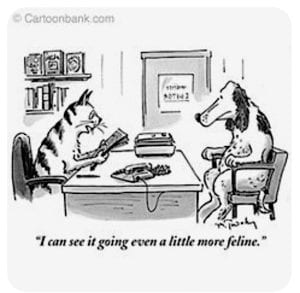 What value do I place on a professional editor? HEAPS!
What value do I place on a professional editor? HEAPS!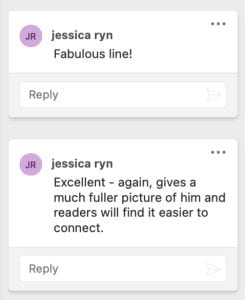

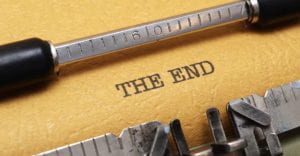
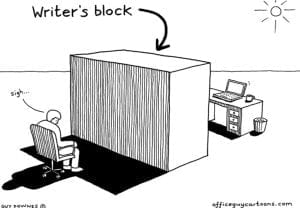 Martin Amis describes how he starts a novel and, in many ways, this gels with me too.
Martin Amis describes how he starts a novel and, in many ways, this gels with me too.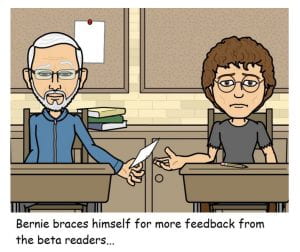 I value my Beta Readers. Like gold, they shine bright and their feedback is invaluable. A keen reader of thrillers – who has devoured over 30 books this year so far – has just finished my book. He was tasked with general feedback, rather than detailed analysis. The golden nugget for me was his comment that he felt the story only got flowing with the submarine action. This got me thinking about the sequence of chapters and made me realise that I could bring the underwater action forward. After some heavy cut-and-paste, this action now begins at Chapter 3 and the story is better paced and more engaging. My reader made a few other passing comments which has led to further tweaks and a better novel. This one made me smile;
I value my Beta Readers. Like gold, they shine bright and their feedback is invaluable. A keen reader of thrillers – who has devoured over 30 books this year so far – has just finished my book. He was tasked with general feedback, rather than detailed analysis. The golden nugget for me was his comment that he felt the story only got flowing with the submarine action. This got me thinking about the sequence of chapters and made me realise that I could bring the underwater action forward. After some heavy cut-and-paste, this action now begins at Chapter 3 and the story is better paced and more engaging. My reader made a few other passing comments which has led to further tweaks and a better novel. This one made me smile;
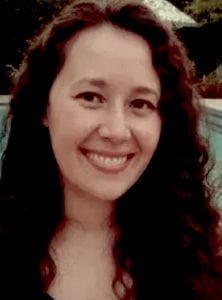 “It’s so simple to let rejections take their toll, but we have to keep dusting ourselves off. After all, if you keep your work to yourself, your chance of anyone liking it is nil, whereas submitting could lead to something great. I’ll take slim odds over none any day of the week. And if you are professional and send your materials to enough people, hopefully you’ll be lucky enough to find the person who loves your work as much as you do!”
“It’s so simple to let rejections take their toll, but we have to keep dusting ourselves off. After all, if you keep your work to yourself, your chance of anyone liking it is nil, whereas submitting could lead to something great. I’ll take slim odds over none any day of the week. And if you are professional and send your materials to enough people, hopefully you’ll be lucky enough to find the person who loves your work as much as you do!”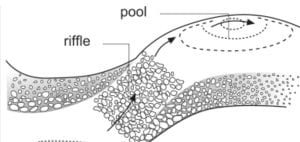 The water in a flowing river ripples over rocks and this keeps it fresh. I hope my stories work like that—like a flowing stream that has a few eddies and a few quiet ponds, but then races downhill over rapids to arrive full of oxygen and life. Ask yourself this question as a writer; does my writing suck oxygen from the reader or pump oxygen into them? I have had the privilege of taking high school students down New Zealand’s Whanganui River. By the end of the trip they were all looking forward to more rapids and became exited when they could hear the roar of water ahead of them. Stories can be like that too.
The water in a flowing river ripples over rocks and this keeps it fresh. I hope my stories work like that—like a flowing stream that has a few eddies and a few quiet ponds, but then races downhill over rapids to arrive full of oxygen and life. Ask yourself this question as a writer; does my writing suck oxygen from the reader or pump oxygen into them? I have had the privilege of taking high school students down New Zealand’s Whanganui River. By the end of the trip they were all looking forward to more rapids and became exited when they could hear the roar of water ahead of them. Stories can be like that too.
 What makes a good read? Surprises and lots of them. OK, what do I mean by “surprises?” Surprises are out-of-the-blue moments that interrupt the flow of the novel and take it, or a character, in a different direction. Too many surprises and they are not surprises anymore. That’s why I only use a few, and only as necessary to enhance the plot. In my novel, the end chapters reference the kind of surprises that we enjoyed as children at Christmas time. Something like this;
What makes a good read? Surprises and lots of them. OK, what do I mean by “surprises?” Surprises are out-of-the-blue moments that interrupt the flow of the novel and take it, or a character, in a different direction. Too many surprises and they are not surprises anymore. That’s why I only use a few, and only as necessary to enhance the plot. In my novel, the end chapters reference the kind of surprises that we enjoyed as children at Christmas time. Something like this;